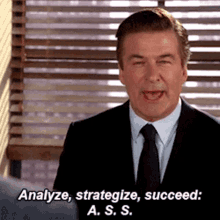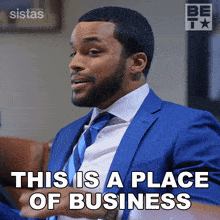Selecting the right work team is a critical step towards achieving your goals. A well-chosen team can be more than the sum of its parts, driving innovation, efficiency, and a positive work environment.
Here are key things to look out for when building your team:
1. Complementary Skills and Expertise:
Identify the necessary skills: Clearly define the tasks and objectives of the team. What specific skills, knowledge, and experience are required to achieve these goals?
Look for a balance: Avoid assembling a team where everyone has the same skillset. Seek individuals whose strengths complement each other, filling in potential gaps. A diverse range of expertise leads to more comprehensive problem-solving and innovation.
2. Relevant Experience and Track Record:
Assess past performance: Review candidates' previous experience and accomplishments. Do they have a proven track record of successfully tackling similar challenges?
Consider different levels of experience: A mix of seasoned professionals and those with fresh perspectives can be beneficial. Experienced members can provide guidance, while newer members might bring innovative ideas and enthusiasm.
3. Adaptability and Learning Agility:
Look for individuals who embrace change: The modern workplace is dynamic. Seek team members who are comfortable with ambiguity, can adapt to new situations, and are willing to learn new skills.
Assess their growth mindset: Do they view challenges as opportunities for learning and development? Are they proactive in seeking out new knowledge and skills?
4. Communication and Collaboration Skills:
Evaluate their ability to articulate ideas clearly: Effective communication is crucial for seamless teamwork. Can they express their thoughts and listen actively to others?
Observe their collaborative spirit: Look for individuals who are team players, willing to share knowledge, support colleagues, and work towards a common goal. Assess their ability to handle constructive feedback and contribute positively to group discussions.
5. Problem-Solving Abilities:
Assess their analytical skills: Can they identify issues, analyze information, and develop effective solutions?
Consider different problem-solving approaches: Some individuals excel at strategic thinking, while others are more hands-on. A mix of approaches can lead to more robust solutions.
6. Initiative and Proactiveness:
Look for self-starters: Seek individuals who don't wait for instructions but identify needs and take action.
Assess their drive and motivation: Are they enthusiastic about the work and willing to go the extra mile to achieve results?
7. Cultural Fit (with Caution):
Consider alignment with team and organizational values: While diversity is crucial, team members should generally align with the core values and ethical principles of the team and organization.
Be cautious of "groupthink": Don't prioritize cultural fit so much that you exclude diverse perspectives and challenges. A healthy team fosters constructive disagreement.
8. Emotional Intelligence (EQ):
Observe their self-awareness: Do they understand their own emotions and how they impact others?
Assess their empathy: Can they understand and share the feelings of their colleagues?
Evaluate their social skills: How well do they build relationships, manage conflict, and work effectively with others? High EQ contributes to a more positive and productive team environment.
9. Passion and Enthusiasm:
Look for individuals who are genuinely interested in the work: Passion can be contagious and drive motivation and commitment within the team.
Assess their level of engagement: Do they seem genuinely excited about the opportunity and the potential impact of the team's work?
10. Long-Term Potential:
Consider their growth trajectory: While immediate skills are important, also think about how the individual might develop and contribute to the team in the future.
Assess their career aspirations: Do their goals align with potential opportunities within the team or organization?
The Selection Process:
Define clear criteria: Based on the project goals and team needs, establish specific criteria for evaluating candidates.
Utilize diverse assessment methods: Employ a combination of resume reviews, interviews (behavioral, situational, technical), work samples, and even team-based exercises to get a holistic view of candidates.
Involve current team members (when appropriate): If possible, involve existing team members in the interview process. Their insights can be invaluable in assessing fit and potential team dynamics.
Check references thoroughly: Verify the information provided by candidates through reference checks.
Building a strong work team takes time and careful consideration. By focusing on these key factors, you can assemble a group of individuals who are not only capable but also collaborative, motivated, and equipped to achieve great things together.









